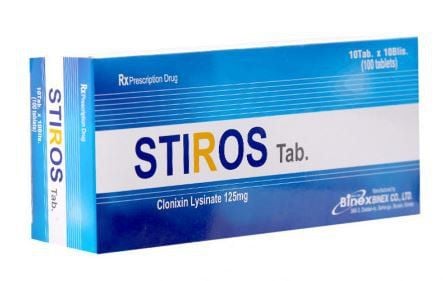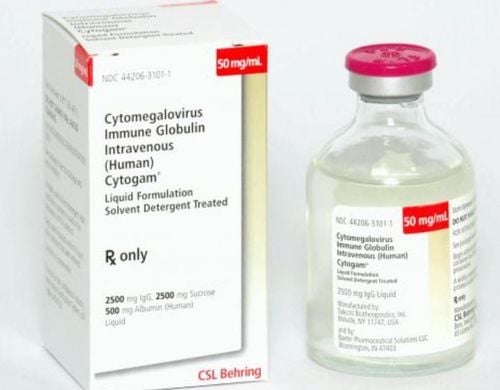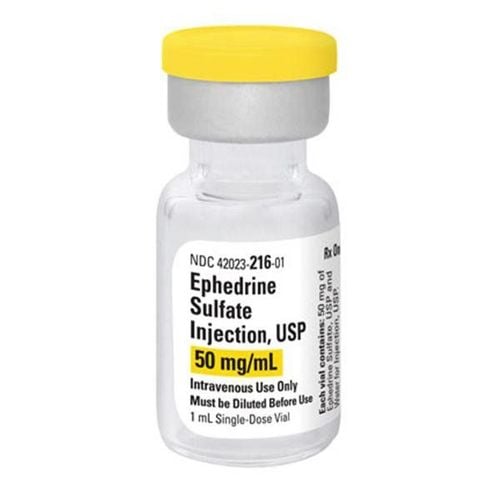This is an automatically translated article.
Adenocor drug with the main ingredient is adenosine with vasodilator effect used to treat paroxysmal supraventricular tachycardia and convert to sinus rhythm. In addition, the drug is also used as an adjunct in myocardial perfusion scintigraphy on patients unable to exercise and has some useful effects on other cardiovascular patients.
1. What is Adenocor?
Adenocor is a purine agonist whose main ingredient is adenosine, which acts on the P1 and P2 receptors (although the P1 receptor is more sensitive to adenosine). Rapid intravenous administration of adenosine slows conduction across the AV node and eliminates paroxysmal supraventricular tachycardia due to re-entry of the AV node, in which case normal sinus rhythm will be restored. The pharmacological effects of the drug include coronary vasodilation, peripheral vasodilation, reduction in myocardial contractility, inhibition of the sinus node and atrioventricular nodal conduction. In supraventricular tachycardia, sinus rhythm recovers in 85-90% of patients. The drug is also useful in electrophysiological studies to determine the location of atrioventricular block. Because of its specific action on the atrioventricular node, adenosine is also useful in determining the cause of tachycardia with an enlarged QRS complex. In terms of pharmacokinetics, when used, Adenocor does not require the participation of liver and kidney function for activation or inactivation, so hepatic or renal impairment has no influence on the efficacy or tolerability of the drug. medicine.
2. Indications and contraindications of Adenocor
Adenocor is indicated in the following cases:
Paroxysmal supraventricular tachycardia, including Wolff-Parkinson-White syndrome for rapid conversion to sinus rhythm Support in myocardial perfusion imaging due to Adenosin Used to dilate coronary arteries with myocardial perfusion imaging or 2-D ultrasound to detect perfusion defects or local abnormal contractility due to coronary artery disease. Contraindications to Adenocor:
Patients with sinus node insufficiency syndrome or second or third degree atrioventricular block who do not have a pacemaker implanted because of the risk of prolonged sinus arrest or complete atrioventricular block Patients with bronchial asthma or Obstructive lung disease because it can cause additional bronchospasm Adenosine is present in some form in all cells of the body and therefore has no harmful effects on the fetus but should be used during pregnancy anyway. if absolutely necessary. Adenosine for emergency intravenous injection has a very short serum half-life so no part of the drug may pass into breast milk when administered to a nursing woman. Adenocor should also be used with caution during ablation. The atrium has an accessory atrioventricular conduction pathway because it is possible for impulses to conduction through it to make the heart beat faster. There should be a doctor monitoring the electrocardiogram and having the means of cardiopulmonary resuscitation when necessary. Intravenous adenosine infusion should be used with caution in patients prone to hypotension, such as autonomic dysfunction, pericarditis, or valvular stenosis.
3. Adenocor side effects:
When injecting Adenocor, before completely returning to stable sinus rhythm, arrhythmias may also occur transiently, such as ventricular extrasystoles, sinus rhythm, atrioventricular block, atrial fibrillation and rapid return of supraventricular tachycardia, even a brief cardiac arrest. Other side effects, which are usually mild and of short duration, include:
Headache, hot flushes Shortness of breath, heaviness in the chest Nausea Somewhat dizzy, lightheadedness, dizziness, frostbite Irritability, sweating, anxiety , burning sensation, metallic taste Palpitations, bradycardia, low blood pressure Blurred vision Pain in joints
4. How to use Adenocor?
Adenocor when used requires a doctor's supervision and facilities for cardiac and respiratory resuscitation are available. For supraventricular tachycardia or for diagnosis, use the following reference dose:
Intravenous rapid injection for 1-2 seconds or into intravenous line, followed by rapid infusion of physiological saline Initial dose: 6mg ( 3mg in the case of injection into the central vein). If not effective, after 2 minutes inject again 12mg and repeat if necessary. A maximum dose of 20mg has been used but higher doses are not recommended. The average effective dose is 1mg when the patient is used in combination with dipyridamol.
Please dial HOTLINE for more information or register for an appointment HERE. Download MyVinmec app to make appointments faster and to manage your bookings easily.













